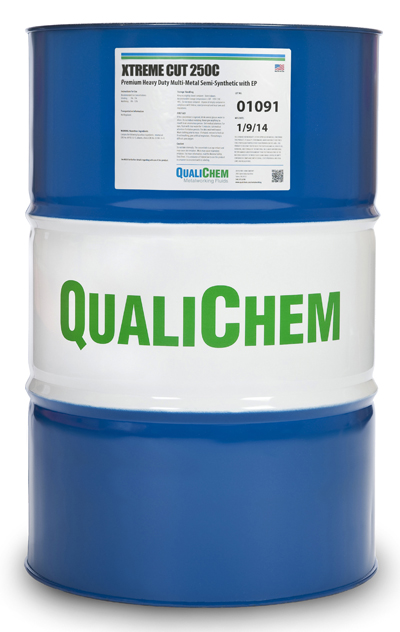XTREME CUT 250C Cutting Fluid
XTREME CUT 250C Cutting Fluid
QualiChem has recently received full Bombardier approval for XTREME CUT 250C.

QualiChem has recently received full Bombardier approval for XTREME CUT 250C. The Bombardier approval, BAMS 569-001, includes Classes A, C and D for lubricants and coolants. The approval certifies that XTREME CUT 250C meets Bombardier's standards of quality and reliability. In addition to Bombardier, XTREME CUT 250C has also been approved by Boeing to the BAC 5008 specification PSD 6-128.
"The opportunity to achieve this approval from Bombardier was driven by one of our customers based on the continued savings and improvements delivered by XTREME CUT 250C," said Mike Forest, QualiChem's Director of Metalworking. "Our success in the aerospace manufacturing market is a reflection of our commitment to continuous improvement and passion for new technology. This prestigious approval from one of the world's top aerospace companies will open the doors for QualiChem to supply XTREME CUT 250C to Bombardier and its Tier II suppliers."
XTREME CUT 250C is a premium multi-metal semi-synthetic fluid designed to provide optimum tool life and surface finish. It is formulated for use on a wide range of ferrous and non-ferrous metals and has excellent bi-metallic corrosion protection for parts and machine tools. The fluid has a tight emulsion to promote tramp oil rejection and exhibits excellent hard-water stability. XTREME CUT 250C uses state-of-the-art raw materials to prevent the disagreeable odors associated with many soluble oils and semi-synthetics. In addition, this product runs clean, is low foaming, and well suited for high-pressure applications.





